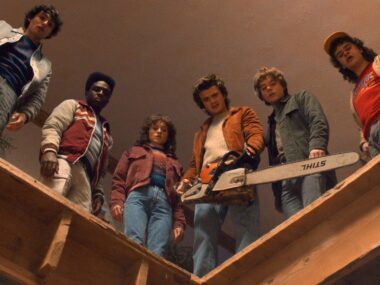MTV was once the cultural center of the music universe. Now, its flagship award show, the Video Music Awards, will air outside of the cable network. Has MTV’s decline gotten so bad that it needs to turn to broadcast television just to get people to their programming?
Why the VMAs Are Moving to CBS
For the first time, the 2025 VMAs will air live on CBS, simulcast on MTV, and stream on Paramount+. The reasoning is simple. Paramount wants to put the VMAs in front of as many eyes as possible. This is part of a recent trend as they had the CMT Awards air on CBS in 2024.
It’s not just about numbers. CBS has long hosted the Grammys and other marquee award shows. By putting the VMAs on broadcast TV, Paramount hopes to remind audiences (and advertisers) that the show still matters. The move is also an admission that MTV alone is no longer the cultural juggernaut it once was.
The State of MTV: From Cultural Titan to Cable Afterthought
At its peak, MTV shaped music, fashion, and youth culture. Today, its primetime audience hovers around 120,000 viewers, ranking it 52nd among cable channels. Back in 2011, MTV reached 99 million households. By 2023, that number had fallen to 67 million.
The VMAs themselves haven’t been immune to this decline. Last year’s show pulled about 4 million viewers, a fraction of what the event once drew. In the days when Britney Spears, Kanye West, or Beyoncé could electrify the VMAs, those numbers would have been considered embarrassing.
Where MTV Went Wrong
So what happened? MTV abandoned the very thing that made it iconic.
Once the early 2000s arrived, MTV had sidelined music videos in favor of reality TV. In 2005, only 25% of programming was music-related. Shows like Jersey Shore, The Challenge, and endless marathons of Ridiculousness became the backbone of MTV’s schedule. They’re cheaper to produce and easier to monetize, making reality TV a replacement for music as the network’s defining trait.
The way pop culture has changed had a lot to do with this shift. As music videos moved online to YouTube, TikTok, and streaming platforms, MTV lost its cultural power. Instead of setting trends, it became just another rerun-heavy cable channel.
How ironic, isn’t it? A channel called Music Television has been anything but for decades.
The VMAs as a Lifeline
In recent years, MTV has tried to recapture its musical legacy around the VMAs. The network has even experimented with sister channels that go back to 24/7 music blocks curated by former hosts and winners. However, these efforts feel like nostalgia plays rather than real reinvention.
The CBS move is bigger. If MTV can’t deliver audiences on its own, it needs to borrow reach and credibility from a broadcast giant.
What MTV Means Now
The decline of MTV isn’t just about bad programming choices. It’s about how music culture itself has shifted. Music discovery happens online instead of on TV. Fans don’t need to wait for Carson Daly to watch a music video on TRL. They’ll see it trending on TikTok or YouTube within minutes.
In this landscape, the VMAs moving to CBS feels more like a band-aid. A way to stretch the brand a little further before it fades entirely.bParamount is doing what it must to keep the brand alive in a fragmented media world. Yet, the fact that MTV can’t carry its own biggest program is the clearest sign yet of its decline.
The VMAs may still spark viral moments, but MTV itself is no longer the cultural pulse. The network that once defined music television is now borrowing lifelines from broadcast TV just to remind us it exists.






